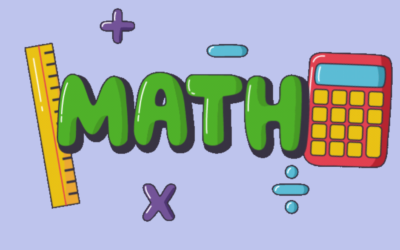There are many ways of getting from A to Z and many of them don’t require a 4.0 GPA and elite school tracks. Dyslexics as a group may have trouble following the traditional route to their dream career because many of their academic strengths are late-blooming.
Q: How Can I Modify Curricula for Dyslexic Students Without Compromising Standards? [Premium]
We were asked: How can I modify the curricula for dyslexic students without compromising standards? MODIFICATIONS VS. ACCOMODATIONS Usually, when 504s or IEPs are discussed, accommodations are mentioned more often than modifications. Accommodations refer to changes in the way students access content and demonstrate what they know. So for instance, an accommodation for dyslexic students might include extra time, the option to use text-to-speech, or a human reader for tests so that assessment more accurately reflect what students know. Modifications, on the other hand are changes in the content of the curriculum, homework, or what a student is expected to learn. Examples of modifications in a curriculum for dyslexic students might include fewer problems, an option to use spellcheck and a word processor for […]
Question: My 5th Grader is Refusing Structured Literacy What Should I do? [Premium]
My 5th Grader is refusing structured literacy, what should I do? The following is general and not specific advice. The best advice comes from someone who knows your student and also knows in more detail what your student has been experiencing. REFUSING STRUCTURED LITERACY It’s generally accepted that structured literacy is the remediation of choice for students who are struggling significantly with reading and individual word decoding. There are many reasons why students may struggle with and ultimately give up on structured literacy. They may be depressed and worn out or mismatched with a curriculum, teacher or tutor. Sometimes what worked for a student in the past won’t work for them now because the progress is slow, or they decode sufficiently that they prefer to […]
English Language Learners and Dyslexia [Premium]
Question: An English language learner recently joined my dyslexia classroom. She seems to be having more difficulty progressing on our standard curriculum. Do you have any suggestions or advice? When trying to understand why a new English Language Learner (ELL or English as a Second Language) student in your class isn’t making progress with peers, individual as well as more general second language-related factors can be contributing to the discrepancy. Whenever a particular student seems to be having trouble showing progress with a curriculum, individual factors, such as their vision or hearing (including chronic ear infections, for instance) interfering with their learning should be considered. Beyond this, questions about speed of instruction, working memory, long-term memory, the number of repetitions needed to progress should be […]
Free Visual and Hands-On Math Curriculum: Bridges
Recently, I discovered a free visual and hands-on math curriculum from The Math Learning Center, a non-profit organization that grew out of a National Science Foundation project. The curriculum is for Pre-K through 5th grade and it may be helpful as an addition to...
Question: Keeping Up with Wilson at School [Premium]
Question: I have a third grade student who attends a school that used Wilson Fundations in the earlier grades. The problem is that even though my daughter did some summer work, she’s been having trouble keeping up. She’s dropped down a level from her peers so that she’s just repeating what she had been taught before. There is less stress in the lower group, but would changing her to a different curriculum be a better option? Answer: This is a difficult question to answer specifically. Ideally, someone who really knows your student could give you specific guidance on whether repetition or a new curriculum might be a better move. The Wilson Fundations program is designed for general education classrooms. It (as well as other programs […]
How Not to Learn to Read aka Death by Worksheets [Premium]
Daniel Shanahan recently recounted his discussion with a principal about his school curriculum. His students were under-performing and he assured Daniel that students were receiving plenty of instruction in phonics and fluency. When he looked at the teacher’s curricular plan, it looked as if plenty of reading instruction was given every day, but his impression changed once he began visiting classes. Daniel: “Much of the instructional time wasn’t used for instruction at all. The teachers spent a big chunk of time on “sustained silent reading” and they read to the children quite a bit, too. All the classrooms had multiple reading groups. That meant that the boys and girls did a lot of worksheets to keep them quiet while the others were reading with […]
I Never Thought I’d Be Homeschooling… [Premium]
We never thought we would be homeschooling when we started almost 2 decades ago. What our family can say today, is that looking back, we’re so grateful for our entire homeschooling journey – even though initially homeschooling chose us rather than the other way around. Today there are so many reasons to homeschool and ways that homeschooling can also be a good fit for dyslexic students, so take heart in the adventure ahead of you and may the coming year be one good surprise after another. WHY HOMESCHOOLING CAN BE A GOOD MATCH FOR MANY STUDENTS Schooling at an Individual Pace The first reason why homeschooling can be a good match for many students is that traditional schooling can be a […]
Homeschooling or Modified Schooling?
As vaccines roll out and schools head back for at least part-time in-person learning, many families will be thinking carefully about whether homeschooling will be the best choice for them in the coming year. NOTHING WILL BE PERFECT First off, it's best to be...
Real World Learning with Dr. Glenn Sterner
In our interview with CEO Brett Kopf, he told us that the experience of being part of the Bailey Scholar program at Michigan State University was life changing in terms of finding a positive future for himself. He told me that his advisor was a really inspirational...
Schooling From Home, Can You Do It?
Like it or not, when Fall rolls around, many of us may need to school from home whether it's our first choice or not. What if your student is dyslexic? Can it possibly work? There are a lot of people who can't see schooling from home working for their student, but...
READING FLUENCY: Phrase Cueing [Premium]
Once students have made significant progress with single word decoding, reading fluency practice can be rolled into reading practice with phrase cueing. HERE is a nice review of reading fluency approaches that includes a discussion of phrased reading. Phrase scooping or cueing involved the drawing of scoops underneath groups of words that go together in parts of a phrase. Combining scooped words with choral reading or echo reading can help students get practice with both reading and listening for phrases. Intervention Central has a Phrase Cued Text Generator, but it’s so-so. It’s better to break sentences into 3-6 word phrases to increase the ease of reading. From Steve Peha, check out the example below: Of course these shorter phrases also help with reading on a […]

![Not the Standard Track: Extracurriculars and Work Experience [Premium]](https://www.dyslexicadvantage.org/wp-content/uploads/2024/04/Extracurriculars-and-Work-Experience-Premium-1-400x250.jpg)
![Q: How Can I Modify Curricula for Dyslexic Students Without Compromising Standards? [Premium]](https://www.dyslexicadvantage.org/wp-content/uploads/2024/03/Modify-Curricula-for-Dyslexic-students-400x250.jpg)
![Question: My 5th Grader is Refusing Structured Literacy What Should I do? [Premium]](https://www.dyslexicadvantage.org/wp-content/uploads/2024/02/5th-Grader-Refusing-Structured-Literacy-400x250.jpg)
![English Language Learners and Dyslexia [Premium]](https://www.dyslexicadvantage.org/wp-content/uploads/2023/04/English-Language-Learners-and-Dyslexia-Dyslexic-Advantage-400x250.jpg)

![Question: Keeping Up with Wilson at School [Premium]](https://www.dyslexicadvantage.org/wp-content/uploads/2022/12/Question-Keeping-Up-with-Wilson-at-School.png)
![How Not to Learn to Read aka Death by Worksheets [Premium]](https://www.dyslexicadvantage.org/wp-content/uploads/2022/03/kawin-harasai-2Ev2aUB8NJI-unsplash-400x250.jpg)
![I Never Thought I’d Be Homeschooling… [Premium]](https://www.dyslexicadvantage.org/wp-content/uploads/2021/10/I-Never-Thought-Id-Be-Homeschooling-2-400x250.png)



![READING FLUENCY: Phrase Cueing [Premium]](https://www.dyslexicadvantage.org/wp-content/uploads/2020/01/phrase-craze-3-400x250.jpg)













